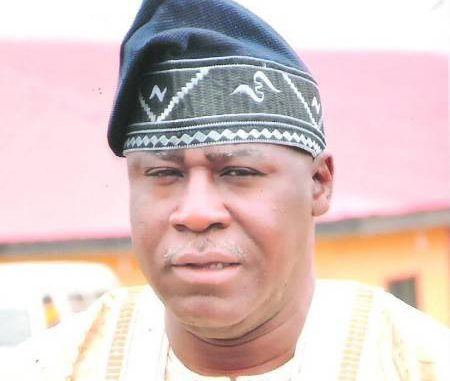
In Yoruba land like in most African cultures, respect is the hallmark of our tradition. It is given, most times without question but never in isolation of other moral variables.
Respect is a very important tenet of the concept of OMOLUABI, among many others that I will touch on here.
We give respect to our elders as a matter of course. Without being individually demanded, our culture and tradition make it obligatory on everyone in every stratum of our society to give it to whom it is due. This principle is so deep that the Yoruba believe that at times an elderly could cheat a younger one without too much protest from the youngster. I believe that is the origin of the saying, “Kò sí nkan t’a nfi àgbà dídà nse ju pé kâ fi yan omodé je.”
However, the Yoruba in its full understanding of human nature which has been functionally related to its dexterity in social engineering that had been evident in the socio-political institutions created in its History has placed enormous responsibility on the leaders and elders in a Yoruba social set up.
Sayings such as “Àgbàlagbà kii se lángbálángbá,” “A gbó ejó enìkan dá, àgbà òsìkà ni,” “Àgbà kìí wà l’ójà kí orí omo tuntun wó,” “Àgbà kò sí ni ìlú, ìlú bàjé, baâle ilé kú, ilé d’ahoro,” “Àì f’àgbà f’énìkan ni kò j’áyé ó gún” among many others are witting expressions of our ethos.
In these aphorisms, elders and leaders are expected to be responsible at all times. They are expected to be above board at all times. They’re expected to be stainless moral leaders and authorities in our milieu. Based on that, they would have earned the respect that the society made obligatory on the rest to give unto them.
But the Yoruba people, because of their understanding of the human nature believe that there would always be some letdowns, some disappointments among the old, elders and or leaders, it was made mandatory by the Yoruba tradition to call such errant ones to order. Hence the saying, “Àgbàlagbà tí kò bá mo eran è l’òbè, à nyóo fun ni.” This may be one of the reasons Uncle Bola Ige once contended in absolute terms that the Yoruba “have the best Culture in the world.” Despite the temptation of such a claim and the naturally enticing embedded pride in it as a proud Yoruba son, I would not agree with this statement of Uncle Bola. I would rather apply the philosophical rule of the Theory of Relativism and say that the Yoruba have one of the best Cultures in the world.
Now, the command of respect by the elders or leaders alike and the obligation of all members of the society to observe this rule is functionally related to acts of moral probity, honesty, integrity, and dignity on the part of the elders and leaders. Their utterances, acts or deeds must be beyond reproach. The moment this expectation is breached by the older ones or leaders, all bets are off. Such leaders are open to remonstrations, rebuke, restrictions, and conscriptions where applicable.
This is one of the reasons why the Yoruba could call an Oba “Aláse èkejì Òrìsà,” or “Kàbíyèsí” or “Ka bi ó kò sí” and yet would depose such a king or Oba if and when he oversteps his boundaries.
In Yoruba land, respect is not just for the take. It is not given without conditions. Thus, when a leader or an elderly begins to lie to the public shamelessly or engage in ignominies, it is automatic that he would lose respect. Omoluabi concept lays a responsibility on a leader or elder to stay clear of behaviors or acts that could tarnish his integrity and make him lose respect.
As Yoruba, it is incumbent upon us all, to ensure that all leaders who have become loose cannons and are contributing to the moral paralysis that is destroying our society be called out appropriately. Political affiliation or loyalty should not be a factor in this venture. We can not allow our politics to determine or define our morality. Rather our morality should determine and or define our politics.
One of the major reasons many people have been demonizing Yoruba faiths as compared to either Christianity or Islam is because Yoruba faiths are very consequential. The underlying irresponsibility embedded in human nature nay Nigerians have made them to malign and demonize Yoruba faiths. You can’t swear falsely with Yoruba Orishas. You would pay a very heavy and consequential price if you do. Whereas, you could get away with false swearing using the Bible or the Quran. This is why a President or Governor would begin stealing the very day he or she takes Office because he or she is very sure nothing would happen as a result of that swearing-in.
This is why degeneration and decadence is on the increase. The least we can do is to eliminate respect for elders or leaders who don’t deserve it. By their actions and utterances, they have violated the concept of Omoluabi. Such elders or leaders could not expect to benefit from the positives of the Omoluabi concept.
There must always be consequences for actions. The Yoruba are complete in their understanding of human nature. May Èdùmàrè bless my ancestors. Ase.
END

Be the first to comment